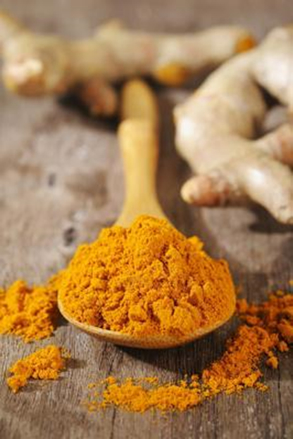Posted on LIVESTRONG.COM on Jul 18, 2015 | By Brindusa Vanta
http://www.livestrong.com/article/372874-curcumin-for-diabetes/
Turmeric contains curcumin.
Photo Credit Chorboon Chiranuparp/iStock/Getty Images
Diabetes is a common metabolic disorder that was diagnosed in 1. 9 million Americans in 2010, according to American Diabetes Association. This condition is characterized by higher than normal blood sugar levels and is associated with digestive symptoms and complications affecting the heart, kidneys, eyes and nervous system. Curcumin, a natural supplement used by Ayurvedic physicians, may help improve digestive problems and blood glucose levels associated with diabetes; however, more research is needed to fully confirm these benefits. If you suffer from diabetes and consider taking curcumin, you should talk first to your doctor first.
Indications
Turmeric is a perennial herb from ginger family and its active ingredient, curcumin, is widely used in Asia as a spice in curry powders and mustards, as a natural colorant in food industry, and also as a medicinal powder. In Oriental medicine, it is primarily used for digestive problems, especially heartburn, excessive gas and diarrhea. Since diabetics may experience these symptoms, alternative health care providers may use curcumin to improve digestive symptoms as well as blood sugar levels associated with diabetes.
Research
A study carried out by research team from Columbia University Medical Center found that animal subjects exposed to turmeric were less prone to developing type 2 diabetes based on their glucose level, glucose and insulin tolerance tests. The authors also observed that curcumin has anti-inflammatory and anti-oxidant qualities that may be responsible for improving insulin resistance and therefore may prevent type 2 diabetes. This study was published in July 2008 issue of “Medical News Today.”
Dosage & Safety
A daily dose up to 8g of curcumin is generally considered safe and well tolerated. Higher doses may case gastrointestinal side effects. Curcumin should not be used by women who are pregnant or breastfeeding, or by people who have gall bladder diseases or are about to undergo surgical procedures. Curcumin may cause allergic reaction in susceptible people. This herb may interact with herbs and drugs that have blood thinning effects.
Considerations
Consult a qualified health care professional to find out optimal dosage of curcumin that may help improve your glucose levels. Other natural supplements and a healthy diet may also be recommended in addition to curcumin. Monitor yourself closely during the first month of using curcumin to avoid lowering too much your blood sugar levels. Keep in mind that curcumin should not be used to replace anti-diabetes drugs. U.S. Food and Drug Administration has not approved curcumin for treating diabetes or any other medical condition.
Original Article available at LIVESTRONG.COM
http://www.livestrong.com/article/372874-curcumin-for-diabetes/

